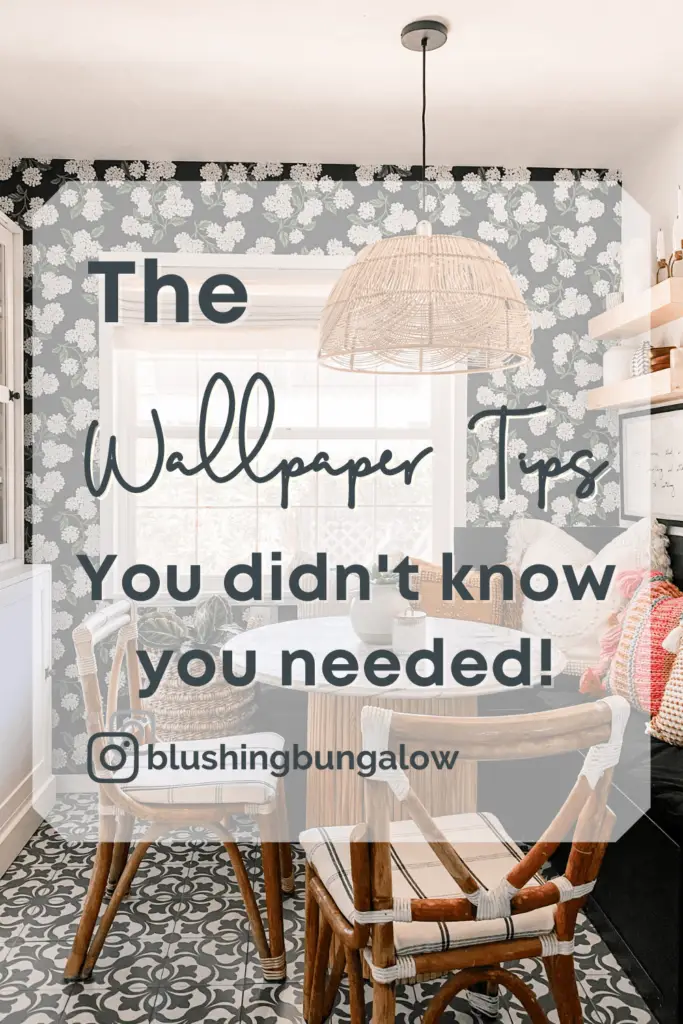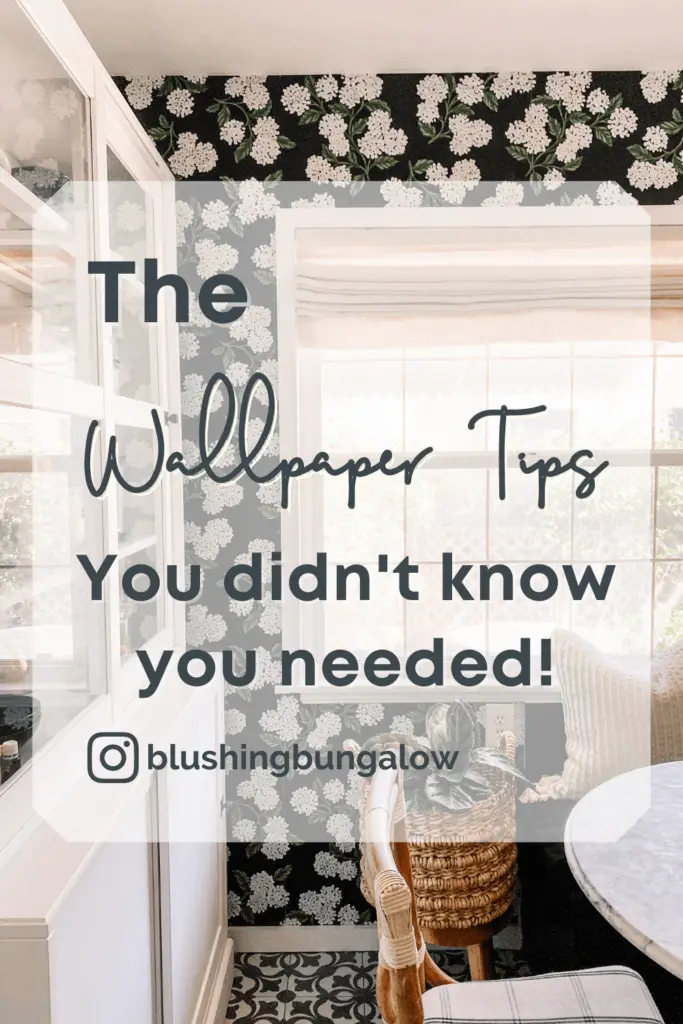About a year ago I put up some peel and stick wallpaper in my kitchen. Our itty-bitty beach bungalow still has its charming aluminum windows which means humidity and moisture! This doesn’t bidwell with peel and stick wallpaper so after about a year the wallpaper began to peel off the wall.
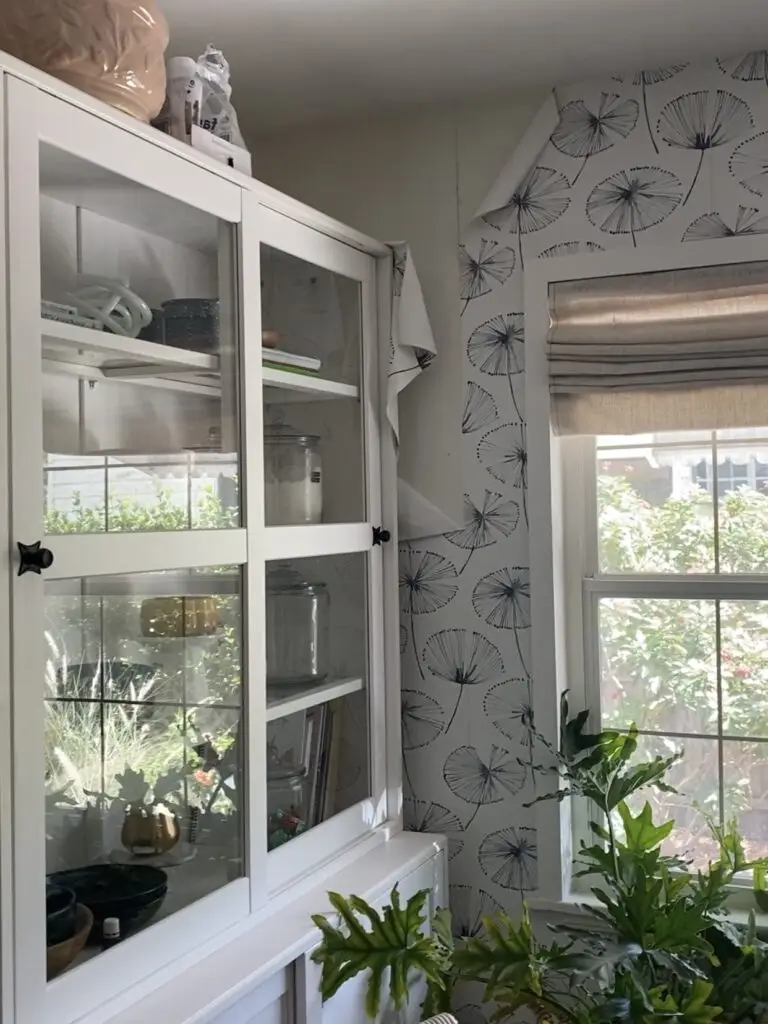
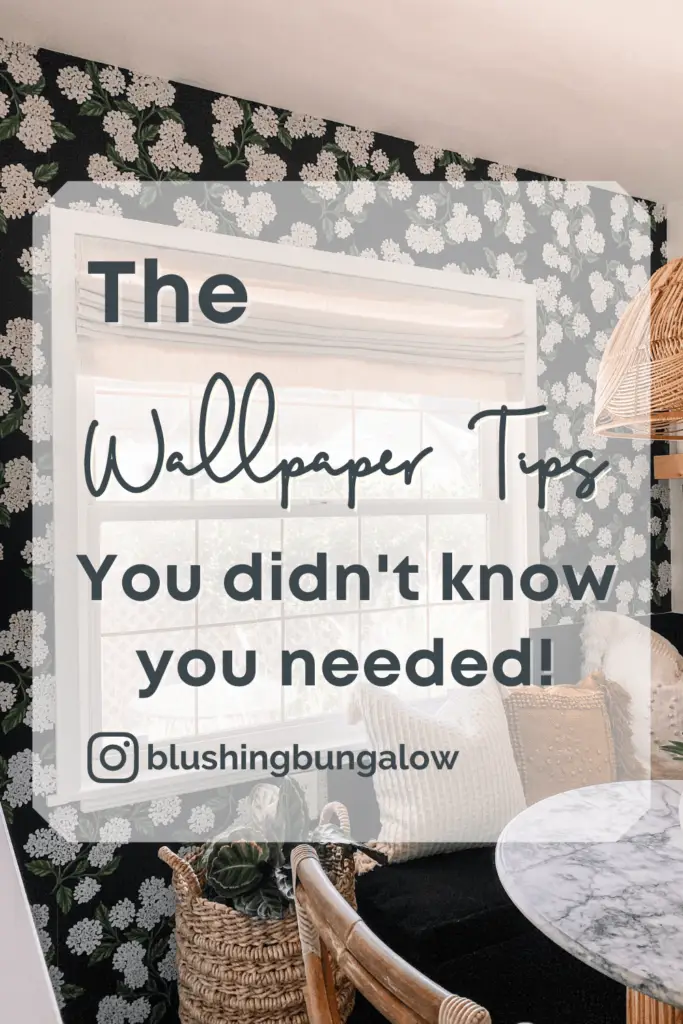
I knew I had to replace the peel and stick wallpaper with traditional wallpaper. I have traditional wallpaper in other parts of my home and it does so well!
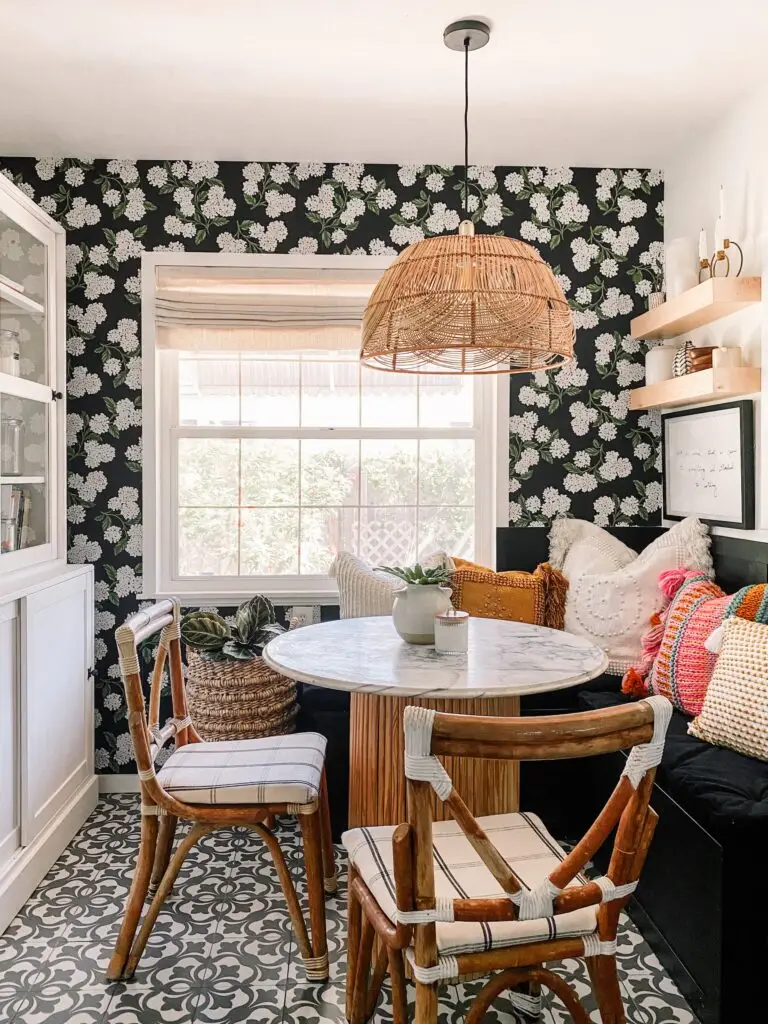
| WALLPAPER | PASTE | WALLPAPER KIT | WOOD BOWLS | WHITE PILLOW | BLACK PAINT | LIGHT | STOOL | INSTANT POT | CHAIR (SIMILAR) | TABLE |
I love how this floral wallpaper turned out in our dining nook! I used traditional wallpaper with heavy-duty paste. I also purchased this wallpaper kit to make it a little easier and it looks so professional!
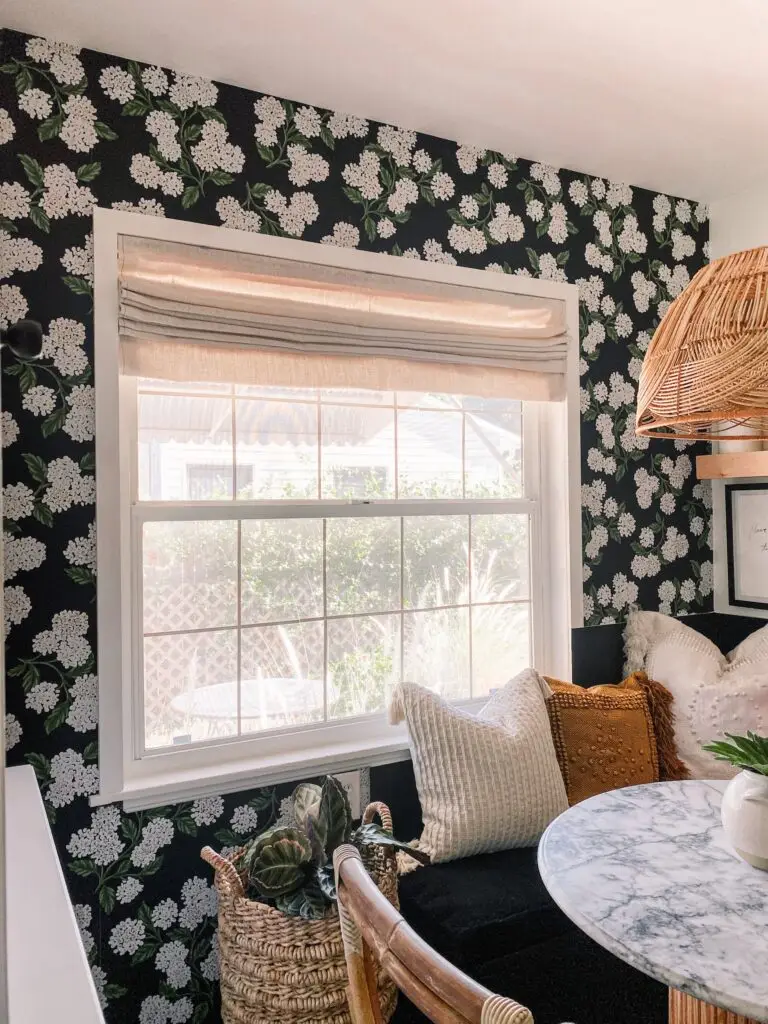
There are several different types of wallpaper. I want to focus on the main differences between peel and stick and traditional.
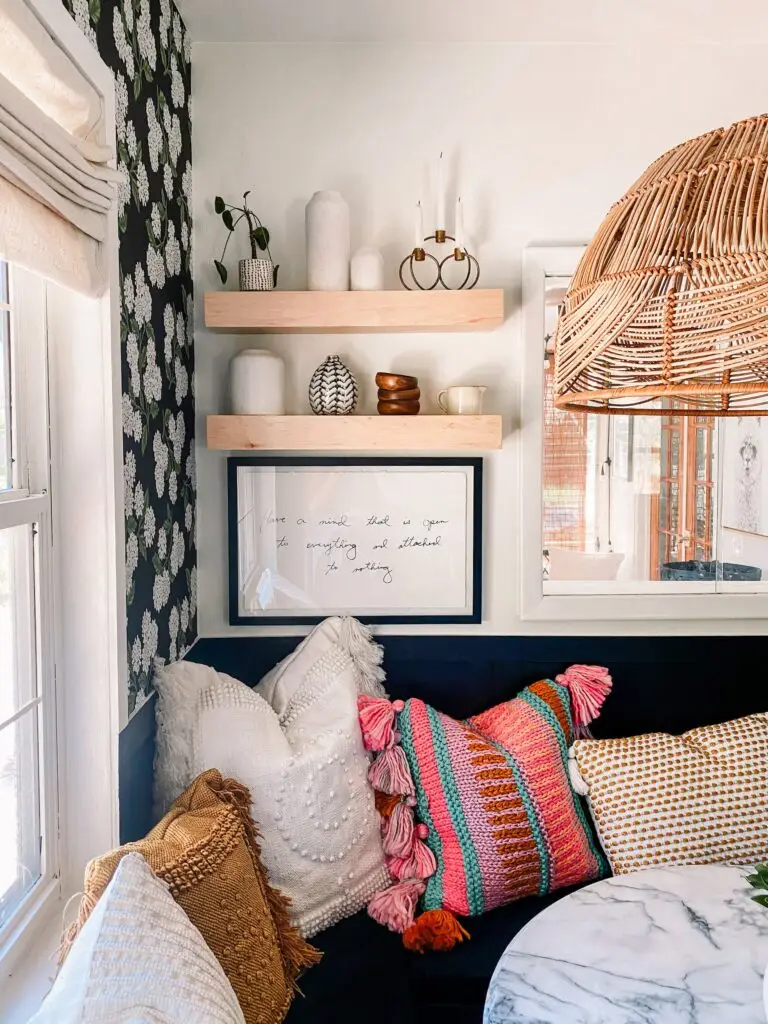
Peel and stick wallpaper already has some type of adhesive on the back of the wallpaper. There’s usually a backing that you peel off and stick right to the wall! Peel stick works perfectly for newer homes with less humidity and walls with little to no texture. I have read that you can add wallpaper paste to your peel and stick if you need extra help.
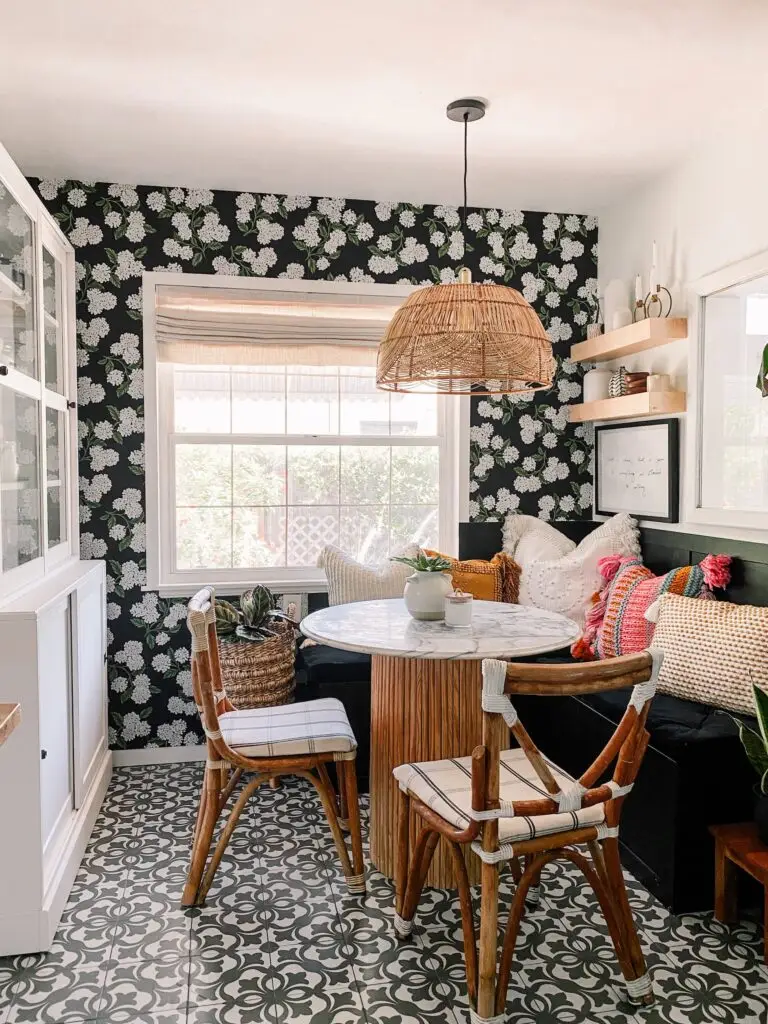
Traditional wallpaper usually has no adhesive on the backing and you need to apply the glue yourself. Traditional wallpaper works better for walls with little to some texture. If you have a lot of texture on your wall I recommend using a darker wallpaper as this will hide the texture. Here are a few tips for your next wallpaper project!
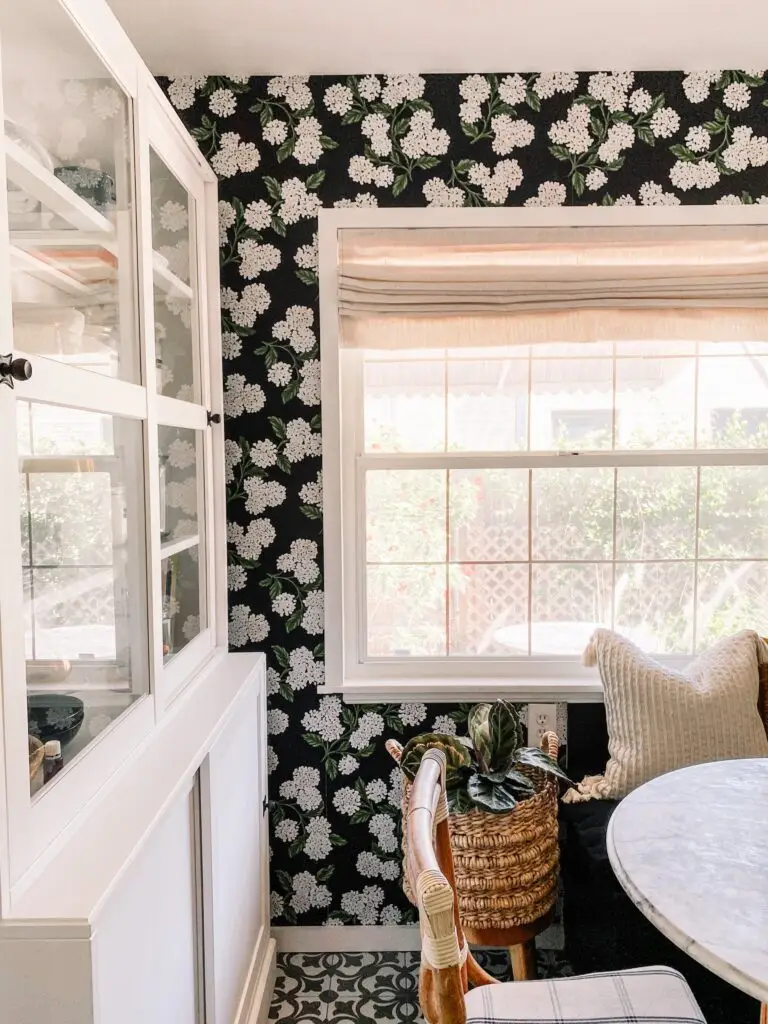
Wallpapering Tips
Clean the surface! A clean surface will make sure the adhesive sticks well. Just use a warm cloth and wipe down the walls throughly.
Peel and Stick or Tradtional
The main difference between peel and stick and traditional wallpaper is that traditional wallpaper allows you to move the wallpaper once it’s on the wall as peel and stick is more like a sticker. Think about gluing a small piece of paper to a piece of wood. You’d be able to move the piece of paper around until the glue dries. That’s traditional wallpaper. As peel and stick wallpaper more like a sticker. Once it’s placed on your wall there’s not a lot of movement. That’s why I think traditional wallpaper is easier to work with when learning how to wallpaper.
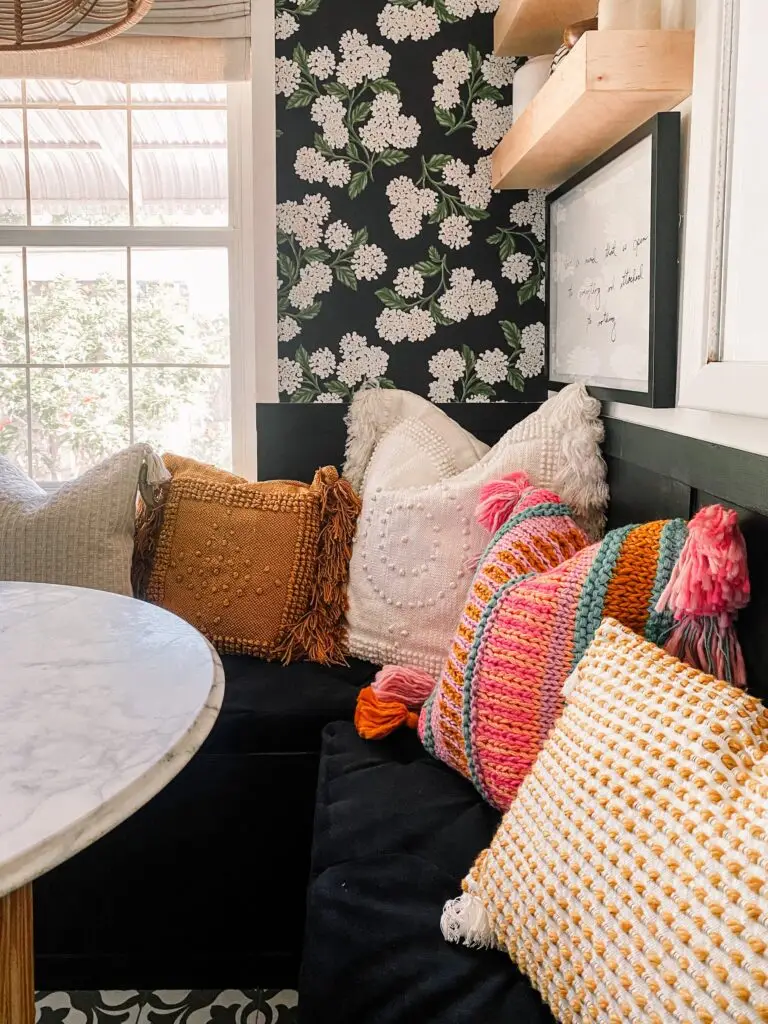
Draw a Level Line
My next tip is to draw a level line. Usually, the biggest problem with wallpapering is the further you go the more crooked your wallpaper can be. By drawing a line for your first piece will ensure that the rest of your wall is level.
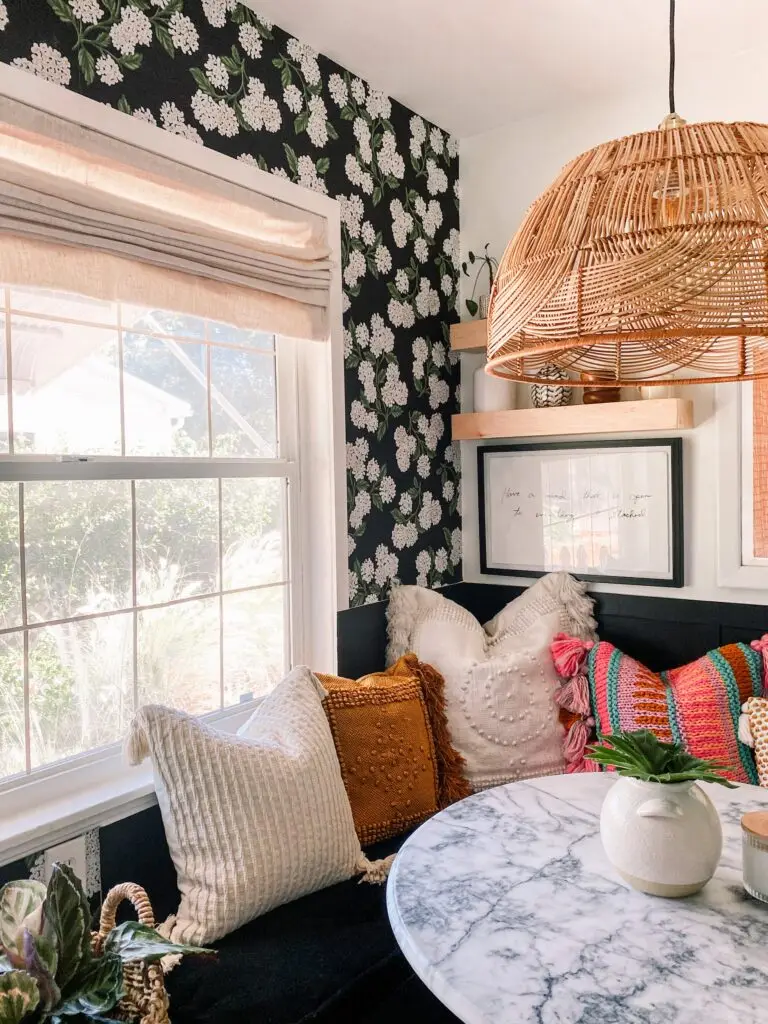
Start in the Middle
My last tip to making a wallpaper project successful is… as you are pressing the paper against the wall, start from the middle and work your way out. This will make sure you don’t trap any bubbles and your wallpaper sits flat.
